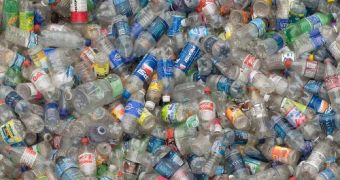Cynar Plc, and Jeremy Roswell, a British man who seems to have no troubles when it comes to experimenting with the latest in environmentally friendly technology, recently teamed up to test whether or not the airline industry can be made to improve on its ecological footprint with the help of discarded plastic materials.
For those unaware, Cynar Plc is an Irish company that specializes in turning plastic waste into an innovative type of fuel that can successfully be burnt by diesel engines.
Thus, their researches on this topic might soon change the way we feel about plastics we no longer need, and help prove that this often neglected resource can yield major benefits when dealt with properly.
As explained on the company's website, “Cynar was established to focus on finding solutions to waste problems. It was apparent then, and remains today, that End of Life Plastic is the waste industry's biggest issue. The new Cynar Technology is a unique and profitable process that is pertinent to the largest issue facing all markets and recyclers today, positive disposal of end of life plastic.”
Turning back to the flight pilot Jeremy Roswell is to soon embark on, it seems that this adventurer intends to begin his journey in Sydney and end it in London, and that this 10,000-mile trip through the air will take him about 6 days to complete.
Business Green informs us that the technology by which this innovative plastic waste-based fuel is made produces absolutely no harmful emissions, and that the fuel obtained in the end is surprisingly cleaner than conventional diesel is.
Furthermore, in order to produce the 400 liters of fuel needed to support this flight, about 5 tonnes of plastic waste will need undergo the conversion process. Therefore, should this technology be implemented on a larger scale, managing plastic waste could be much easier than it presently is.
According to the same source, Jeremy Roswell's journey will constitute the first time when this innovative fuel is tested in the context of the airline industry, as up until now it has only been used to power cars.
As Jeremy Roswell puts it, “"Our objective is to prove that this synthetic fuel made from plastic waste is viable for a number of practical solutions and by doing so replace the need to use fossil fuels from conventional sources.”

 14 DAY TRIAL //
14 DAY TRIAL //